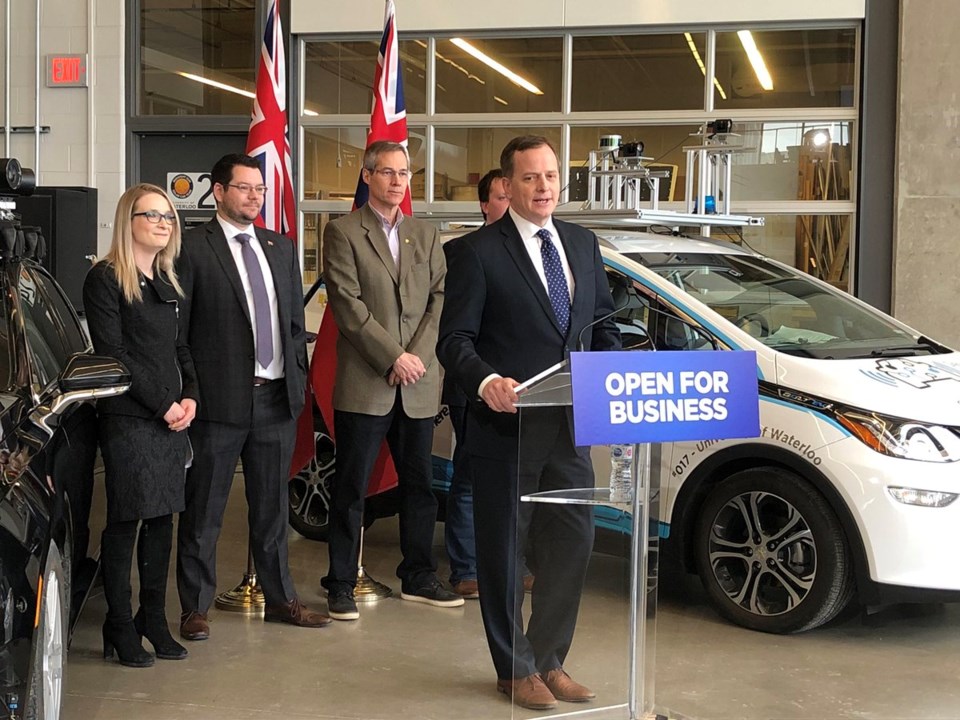The province has updated its Automated Vehicle Pilot program, which it says will allow for more testing of emerging technologies.
The announcement was made Tuesday by Transportation Minister Jeff Yurek at the Sedra Student Design Centre at the University of Waterloo.
Yurek said reducing red tape will also lead to job creation.
It means vehicles equipped with higher levels of automation (Society of Automotive Engineers (SAE) Level 3 technology) can be driven on Ontario roads once they are eligible for purchase in this country.
Permit pilot participants will also be able to test driverless automated vehicles and connected truck platoons on roads, under strict conditions.
"Today there's over a hundred Ontario companies, as well as other universities and other organizations, active in this sector. The organizations represented here today ... are pushing the limits of innovation, stimulating economic growth and contributing to job creation." Yurek said.
He added that Ontario is leading the nation in testing, developing and bringing automated vehicles to market.
The managing director of the Waterloo Centre for Automotive Research (WatCAR) at the University of Waterloo said this will keep Ontario at the forefront in terms of the testing they're allowed to do on public roads.
"There are some jurisdictions in the U.S. who are contemplating doing what was announced here today. There are others ... already with the provisions in the place in the United States, but Ontario is the only jurisdiction you can legally drive and operate an autonomous vehicle on a public roadway in Canada," Ross McKenzie told 570 NEWS.
He said they want to reduce fatalities and collisions, adding 90 per cent of crashes are caused by human error.
"As we look to reduce fatalities and accidents, technology is going to help us take human error out of the equation as a variable." McKenzie added.
The University of Waterloo has been part of the autonomous vehicle pilot program since 2016.
KitchenerToday/Rogers Media



